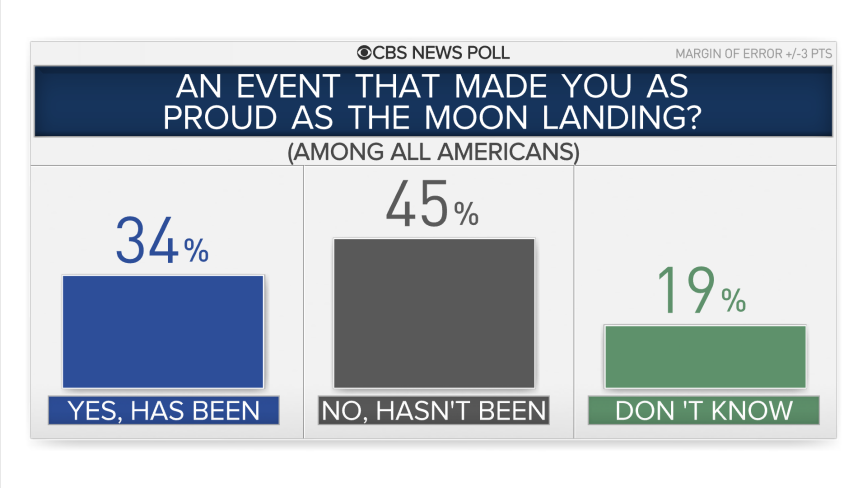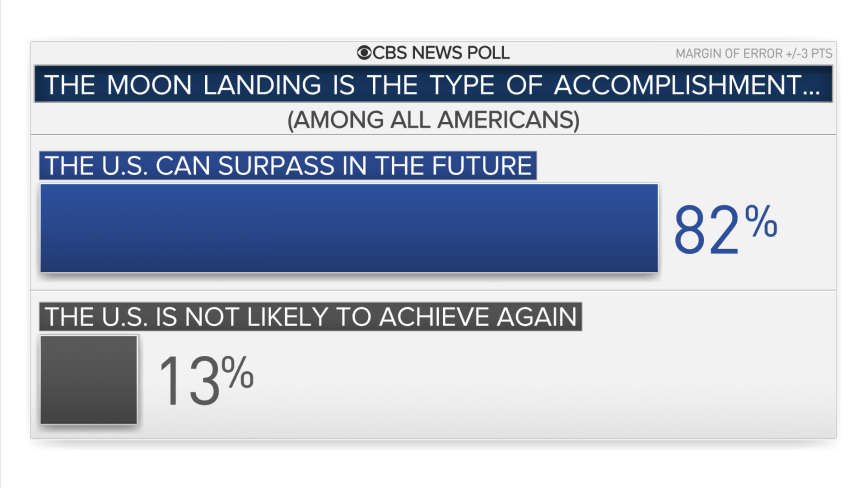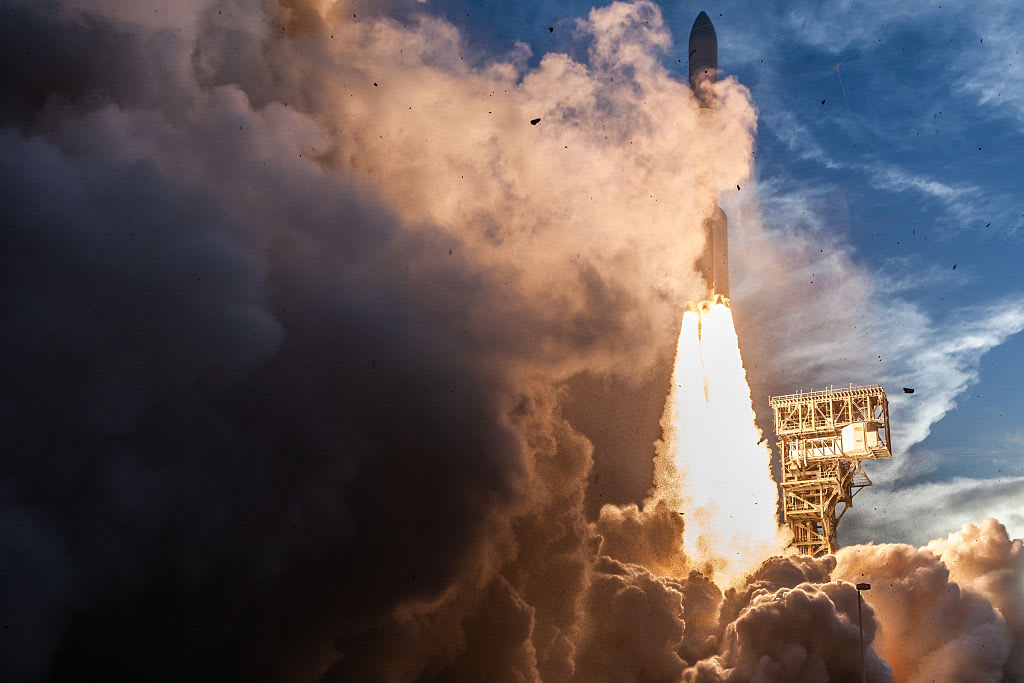Moon landing is still a source of pride - CBS News poll
Apollo 11's mission still inspires optimism: eight in ten Americans say it represents the kind of achievement the U.S. is likely to achieve again someday. For many, it still towers over other events that have come in the ensuing fifty years. Most over age 65, and a plurality of all Americans, feel no event has evoked as much national pride since.
Looking ahead, a large majority favor sending astronauts back to the moon – and that's especially the view among younger Americans who were not around to see the first landing. And most of those who say they favor another mission to the moon – especially younger Americans – also say it's important to send a woman astronaut when we do.
Forty-five percent of Americans say there has been no national event since that brought as much pride in the U.S. as the moon landing did, while 34% say there has been another.
But going forward, the landing still has power to inspire: 82% think it represents the potential for even greater accomplishments the U.S. can achieve in the future, and just 13% think it represents the type of accomplishment the U.S. is not likely to achieve ever again.
There is widespread support in principle for another manned space exploration of the Moon, and even greater support for sending astronauts to Mars. Support for both of these potential missions has risen, compared to CBS News polls from twenty years ago.
Most Americans say it's at least somewhat important to send a woman astronaut to explore the moon. Younger Americans, under age 45, are more likely than older ones to say this is very important.
But in terms of costs and priorities, Americans show more wariness about new missions: when asked about an additional $1.6 billion in NASA funding to get to the Moon again by 2024, 45% of Americans say this would be a good use of money, but 52% say the money would be better spent on something else. Most who favor a return visit to the Moon do think this would be a good use of money.
Evaluations of the U.S. space program since the first Moon landing are mixed. Thirty-five percent say it has accomplished less than expected, 35% about what they expected, while 22% say it has accomplished more than they had expected.
As they have for decades, most Americans say the moon landing was worth it. However, in 1979 - 10 years after the landing and during the 1970s energy crisis - just 47% of Americans said so.
Sixty-eight percent of Americans over 50 say they watched the first moon landing live on TV on July 20th, 1969. Among those 65 and older - who would have been at least teenagers at the time – this percentage rises to 79%.
Thirty-one percent of Americans would like to go to the moon themselves. A higher percentage express interest now than the 13% that were recorded by Gallup a few years before humans first landed on the moon.
Few Americans think people will be living permanently in space – either on the moon or on another planet –in their lifetimes. Just 22% think this will happen.
Younger Americans are generally more excited about the prospect of sending people to the moon or Mars, and 52% of adults under 30 say they personally would like to go to the Moon, compared to just 16% of Americans 65 and older. Younger adults are also more optimistic that people will live in space in their lifetimes, though most think this will not happen.
This poll was conducted by telephone June 13-16, 2019 among a random sample of 1,201 adults nationwide. Data collection was conducted on behalf of CBS News by SSRS of Glen Mills, PA. Phone numbers were dialed from samples of both standard land-line and cell phones.
The poll employed a random digit dial methodology. For the landline sample, a respondent was randomly selected from all adults in the household. For the cell sample, interviews were conducted with the person who answered the phone. Interviews were conducted in English and Spanish using live interviewers. The data have been weighted to reflect U.S. Census figures on demographic variables. The error due to sampling for results based on the entire sample could be plus or minus three percentage points. The error for subgroups may be higher and is available by request. The margin of error includes the effects of standard weighting procedures which enlarge sampling error slightly.
An oversample of Americans age 65 and older was interviewed for a total of 448 interviews with respondents age 65 and older. The results were then weighted in proportion to the adult population. The margin of error for the sample of Americans age 65 and older is plus or minus six points.
This poll release conforms to the Standards of Disclosure of the National Council on Public Polls.











